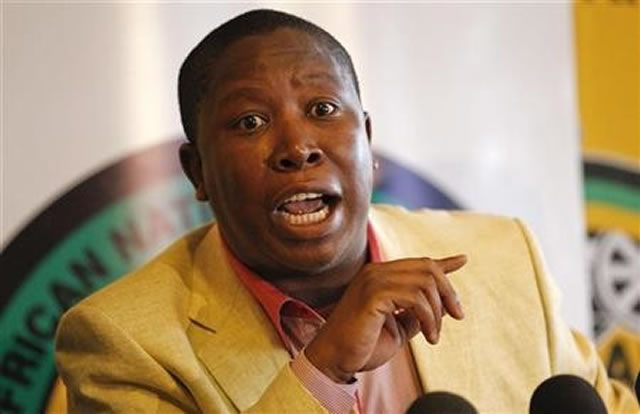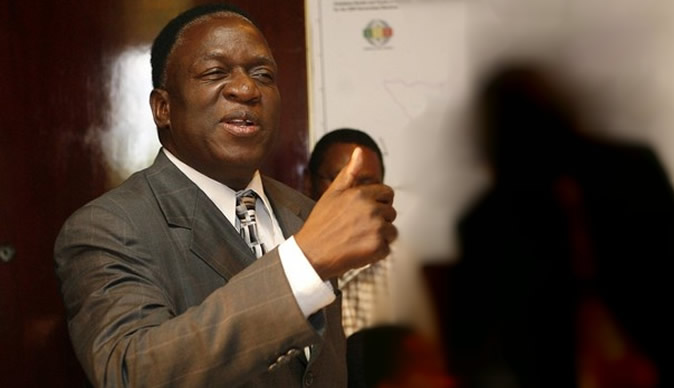EFF must learn to live with a political anomaly

 Saul Gwakuba Ndlovu
Saul Gwakuba Ndlovu
The South African Economic Freedom Fighters political party, popularly known as the EFF, is defying the national parliament on the type of attire worn by its (the EFF’s) members in the august chamber.
Led by the former African National Congress (ANC) youth wing radical agitator, Julius Malema, the EFF parliamentarians put on overalls in the house to show their practical solidarity with the country’s working class.
The speaker of the house says that the overalls are not acceptable to the ANC-dominated chamber and ordered the police to eject the defiant EFF law-makers.
Another bone of contention is the country’s Afrikaans national anthem title Die Stem. The EFF feels that some parts of that obviously racial hymn (as opposed to the African national hymn-Nkosi Sikelel’ Africa) should be left out at least to make it acceptable to all the black people of that nation.
Both issues are quite controversial. They involve social class values and racial historical sentiments. However, a look at the history and aims and objectives of the EFF, one finds a clear pro-working class bias.
The EFF is an ally of the black miners of South Africa, and Malema himself has called for the nationalisation of that country’s industries, especially the mining sector.
He and political colleagues have openly supported the Marikana platinum miners’ demands for a massive improvement of their pay and working conditions.
As for Die Stem, it is rather surprising that the Afrikaans people actually regard themselves as Africans, no less so than the late black nationalist, Nelson Mandela, Oliver Reginald Tambo, Robert Mangaliso Sobukwe and Chief John Albert Luthuli, but do not want to recognise Nkosi Sikelel’ Africa as representing or expressing their sentiments.
If it is a language question, why did they not merely translate the Xhosa national anthem into Afrikaans?
In any case, this is to all intents and purposes an idle question in that it is enshrined in the South African constitution that Die Stem is one of that country’s national anthems, the others being Morena boloka sechaba saesu and Nkosi Sikelel’ Africa.
The EFF will have to learn to live with what one may term a rather strange political anomaly: three national anthems, most probably an inevitable reality in a multi-cultural, multi-ethnic, multi-linguistic nation.
Meanwhile, the EFF is an organisation led by the youth who are full of revolutionary vigour, vitality and a lot of verve! Malema and his EFF colleagues are behaving in a manner typical of their age. They are fearless, impatient, selfless and uncalculating.
An English poet, Harold Begbie, wrote a very appropriate musical rhyme about the youth more than a century ago. Titled the Bugle, his immortal ditty went:
“Who stands upon the mountain crest, h Heir of the burning sun, and with a trumpet at his lips b Blows every call save one? ‘Tis youth, whom none can over throw a And nothing shall defeat; hark how his lifted trumpet sounds a All calls except Retreat.
“The terrors of black night descend upon the steadfast form; fierce flashes of lightnings, thunders roll, the chariot of the storm; but firmer still on that wild cragy. Youth plans his golden feet, and lifts his trumpet to his lips, and never sounds Retreat.
“The night shall pass, the dawn will come; fear not, ye trembling old, man’s path lies upward through the stars, a And heaven is for the bold! Youth’s trumpet rings from height to height. O On to the Judgment Seat! Only the coward soul would sound t The traitor call Retreat! Youth faces always to the Light, g Great courage fills his heart. Ever for him the sun will shine, e Ever the night depart: his faith is in the power of Right, h His truth no shame can cheat; ten thousand times he’d rather die t Than sound a base Retreat.
His trumpet rings wherever Right g Goes up to conquer Wrong: old science hears his toil, t The poet through his song; In gardens where brave Genius starves, a And on through street to street, The trumpet of the mountain calls; “On pilgrim! No Retreat!”
An understanding of Begbie’s poem quoted above helps one to appreciate the EFF’s feelings and motivation. The EFF, in fact says that the ANC administration has abandoned some of the ideological objectives of the Freedom Charter, a reference to Clause 3 of that historic document which states: “The people shall share in the country’s wealth, (and) calls for the nationalisation of mines, banks and industrial monopolies, for trade and industry to be controlled for the benefit of the people and for all the people to have equal economic and job rights.”
The Freedom Charter is an ANC document that was used as a guideline to the liberation struggle.
Produced on June 25-26, 1955, its Clause 4 states: “The land shall be shared among those who work it and demands a redistribution of the land, and state assistance for the peasantry, as well as the abolishing of any restrictions on movements of the people, access to land, and stock holdings.”
It is quite clear that the EFF feels that the ANC administration has not done enough to correct the land issue which was based originally on a 1913 law that allotted only 12,7 percent of the vast country to the African majority and the rest to the minority white settlers.
The EFF says more must be done to rectify that situation. Malema is known to be an admirer of Zanu-PF’s pro-black land policy.
The predominantly youthful EFF party however, forgets one important fact about most political organisations that present and preach revolutionary ideologies and slogans during the liberation stage; when most (and most does not mean all) of them get into power, they adopt conservative ideologies far removed from the usually ultra-leftist ideologies they mouthed at the height of the revolution.
There are two obvious explanations about the ideological shift in the leadership mentality of those organisations.
One is that to gain mass support, a political party fighting against the colonialism must be heard to be promoting anti-capitalist, anti-exploitative populist objectives.
When the same leadership gets into power, however, subjective interests and the instincts of acquisition prevail and submerge virtually all altruistic tendencies. In some instances, greed takes full control of some leaders’ motivation and the revolutionary ideological principles are thrown overboard.
- Saul Gwakuba Ndlovu is a retired Bulawayo-based journalist. He can be contacted on cell 0734 328 136 or through [email protected]










Comments